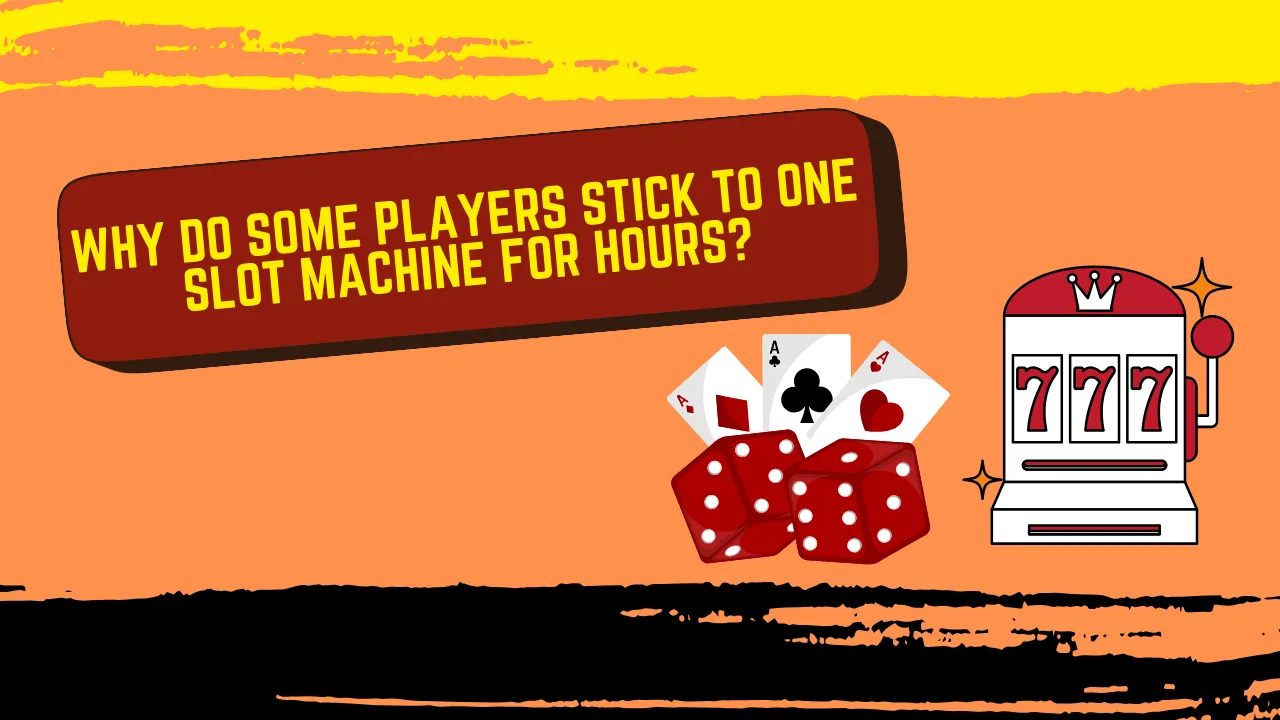If you’ve ever walked through a casino floor or joined an online slots community, you’ve probably noticed one familiar sight: players glued to a single slot machine for hours on end. At first glance, it can seem puzzling. With rows upon rows of games flashing their lights and singing their electronic tunes, why would someone dedicate so much time and energy to just one?
The truth is, there’s more psychology behind this behavior than meets the eye. It’s not just about luck or convenience; it’s about emotions, beliefs, and strategies — even if players don’t always realize it themselves. From my experience exploring casino dynamics and studying gambling psychology, there are several reasons why players build a kind of “relationship” with one machine.
The Illusion of the “Hot” Machine
One of the most common reasons players stick to a single machine is the belief that it’s “due” for a win. Many gamblers subscribe to the idea of “hot” or “cold” machines, thinking that if a machine hasn’t paid out in a while, it’s more likely to reward them soon.
While modern slot machines run on random number generators (RNGs) that make each spin independent of the last, the perception of patterns is powerful. Players feel that staying committed increases their chances of eventually hitting the jackpot. Leaving early feels like surrendering just before the big payout, so they stay, sometimes for hours.
This belief ties into what psychologists call the “gambler’s fallacy” — the idea that past outcomes influence future ones in random events. Even if it isn’t logically accurate, it’s deeply compelling when money is on the line.
Comfort, Familiarity, and Routine
Beyond beliefs about luck, there’s also the comfort factor. Slot machines can be overwhelming at first glance, especially for new players. Once someone finds a machine they enjoy, they often stick with it because it feels familiar. They know the pace, the paylines, the bonus rounds, and even the sound effects.
This sense of routine creates comfort, almost like returning to a favorite coffee shop or familiar seat on the bus. It’s less about rational strategy and more about creating a safe, predictable gaming environment in a space that can otherwise feel chaotic.
Interestingly, this kind of comfort-driven loyalty isn’t exclusive to slots. Poker players, for example, often gravitate toward certain platforms where they feel most at ease. That’s part of the appeal of curated resources like top 10 poker sites uk, where players seek the platforms that align with their personal style and preferences. Just like slot fans, poker enthusiasts often stick to what feels right.
The Near-Miss Effect
One of the most fascinating psychological triggers in slot gaming is the near-miss effect. When the reels land just shy of a winning combination — say two jackpot symbols and a third that’s just off — players experience a surge of excitement that feels almost as rewarding as a win.
Research shows that near-misses activate the brain’s reward pathways, encouraging players to keep going. If a particular machine delivers frequent near-misses, a player may become convinced that a real win is just around the corner, binding them to that seat for hours.
The Role of Personal Superstitions
Casinos are full of rituals and superstitions. Some players bring lucky charms, while others believe in sitting at a specific angle, pressing buttons a certain way, or playing at certain times of day. For many, a particular machine becomes part of that superstition.
If a player once had a big win on a certain slot, they may see it as their “lucky machine.” Even if the odds are identical across all devices, the emotional memory of that win creates a powerful anchor. Players often tell themselves stories like, “This machine likes me,” which can keep them there far longer than they originally planned.
Flow State and Time Distortion
Slot machines are designed to induce a psychological state known as “flow.” This is when a person becomes so absorbed in an activity that they lose track of time, forgetting about outside distractions and even basic needs like hunger or fatigue.
The combination of rhythmic sounds, flashing lights, and rapid gameplay is almost hypnotic. Once in this state, hours can slip by without a player realizing it. Sticking to one machine enhances this effect because the brain adapts to the rhythm, making the experience even more immersive.
The Chase for Loyalty Rewards
Many casinos and online platforms reward players for time spent at machines through loyalty programs. These systems track play and award points, free spins, or comps like meals and hotel stays. By sticking to one machine (or one online account), players feel they are maximizing their benefits.
For example, staying loyal to a specific machine not only builds routine but also makes it easier to track how much they’ve invested in pursuit of those rewards. Whether the rewards are financial or psychological, the loyalty system adds another layer of motivation to remain seated.
Emotional Attachment and Narrative
Another overlooked reason players stay at one machine is emotional attachment. Humans are natural storytellers, and gamblers often weave personal narratives into their gaming. A machine becomes “their” machine, one they’ve invested time and money into, making it feel wrong to abandon it before seeing the story through.
It’s not uncommon to hear someone say, “I can’t leave now, I’ve put too much into this machine already.” This mindset, known as the sunk cost fallacy, makes it harder for players to walk away, even when it would make rational sense.
Social Influence and Observation
On a busy casino floor, players often watch each other. If someone sees another player winning on a specific machine, they might believe that it has better odds or payouts. Conversely, a player sitting for hours may want to avoid the embarrassment of leaving, only for someone else to sit down and immediately hit a big jackpot.
The social environment adds subtle pressure, making people cling to their machines longer than they would if playing alone. Online, this is mirrored in forums and live streams, where players swap stories of sticking it out for that “inevitable” win.
Balancing Enjoyment and Awareness
While it’s easy to understand why players stick to one machine for hours, it’s also important to acknowledge the risks. Extended play without breaks can lead to fatigue, financial losses, and impaired decision-making. Responsible gambling initiatives often encourage players to take regular breaks, set limits, and view gaming as entertainment rather than a way to guarantee profit.
That said, the allure of slot machines isn’t inherently negative. For many, the experience is thrilling and enjoyable, offering a unique blend of chance, comfort, and personal ritual. The key is maintaining awareness of why you’re playing and ensuring that the entertainment value outweighs the risks.
Conclusion
The sight of someone glued to a single slot machine for hours is more than just stubbornness or blind luck-chasing. It’s a mix of psychology, emotion, superstition, and game design. From the belief in hot machines to the immersive effects of flow, every factor plays a role in keeping players hooked to one spot.
Understanding these motivations helps not only players reflect on their habits but also sheds light on why casinos design their environments the way they do. Ultimately, whether in slots or poker, the common thread is comfort, routine, and the pursuit of that next big win.



